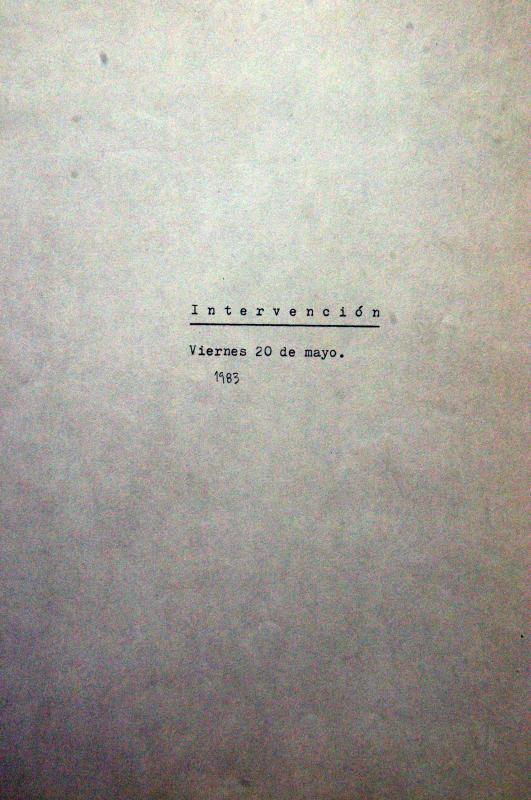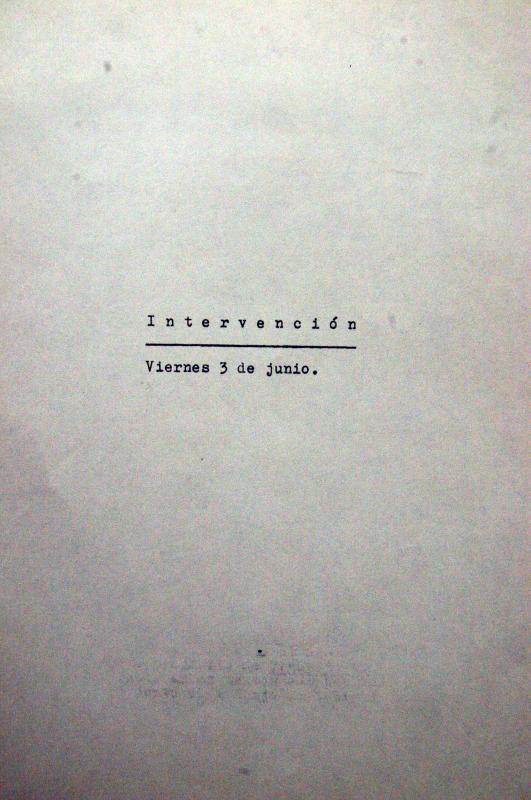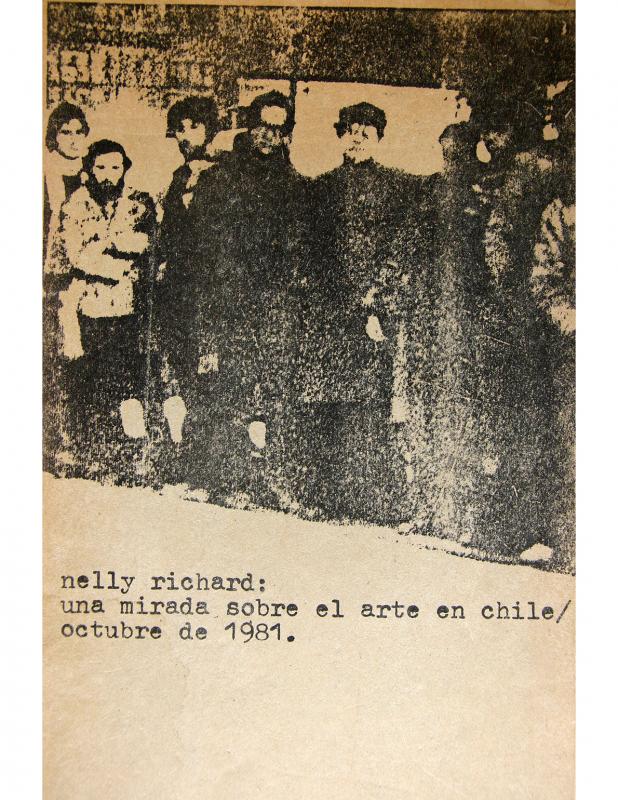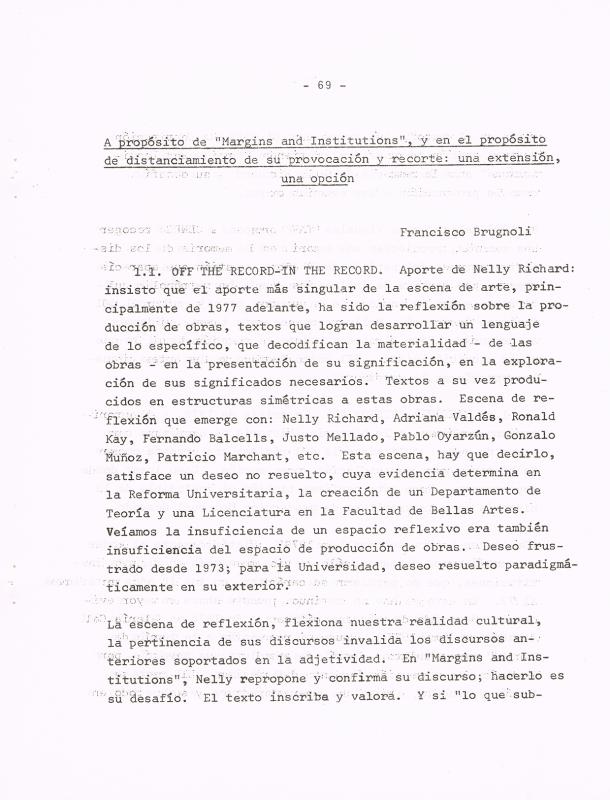“Intervención viernes 13 de mayo” [Intervention Friday May 13] is a text written by the art critic and curator Justo Pastor Mellado (b. 1949) for the Seminario de interpretación de la cuyuntura (sic) plástica (1983), the seminar held at the TAV (Taller de Artes Visuales). This was the first of three interventions. [See Mellado’s other two texts for the seminar in the ICAA Digital Archive: “Intervención viernes 20 de mayo” (doc. 749179) and “Intervención viernes 3 de Junio” (doc. 749190).] In this text, Mellado presents a critical reading of the Escena de Avanzada, a concept coined by the theorist and cultural critic Nelly Richard (b. 1948). In Mellado’s opinion, it is a written reference that can be traced to two instances; one of them is “inflationary” (1977–81) and alludes to the text “Postulación de un margen de escritura” in which Richard uses the word “avant-garde” to refer to the group of artists and works she is reviewing. The second, a “deflationary” instance (1982–83), refers to the appearance of the term Escena de Avanzada in the text “Una mirada sobre el arte en Chile” (1981). [To read Richard’s text, see the ICAA Digital Archive: “Una mirada sobre el arte en Chile” (doc. no. 730121).]
The Escena de Avanzada, a term coined by Richard—in Margins and Institutions. Art in Chile Since 1973, the book published in Melbourne, Australia (1986)—was a group of neo-avant-garde artists and art practices that challenged art and art production methods in Chile during General Augusto Pinochet’s dictatorship. This movement represented an “unofficial” art that sought to stimulate a critical awareness of resistance to the regime. These art practices prioritized a linguistic effort to thwart the dominant culture.
Mellado’s first intervention sheds light on his overall interpretation of a period (1977–83) marked by the activities of artists and theorists who were involved with the so-called Avanzada. Readers should note the review of the different approaches taken by the art action group C.A.D.A. (Colectivo Acciones de Arte, 1979–85) and Richard, which are portrayed as being at odds with each other. One of the features of that period was the constant theoretical discussions on different occasions; the TAV hosted those debates on their premises, demonstrating a critical ability vis-á-vis its own practices.
The TAV was a print and graphic workshop that also functioned as a meeting place for artists. It was started by the artist Francisco Brugnoli (b. 1935), who was dismissed from the Universidad de Chile when the military took over the university after the coup d’état in 1973. Members of the TAV organized exhibitions and seminars and participated in events involving a range of different groups in Chile’s cultural world and in the defense of human rights. [Regarding the TAV and the Escena de Avanzada, see the following in the ICAA Digital Archive: “A propósito de Margins and Institutions, y en el propósito de distanciamiento de su provocación y recorte: una extensión, una opción” (doc. 738632) by Brugnoli.]




